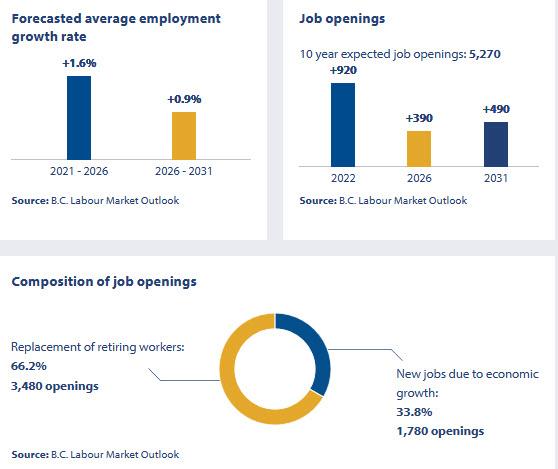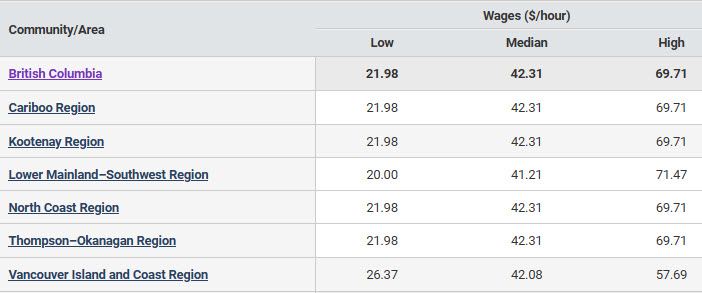Working as an ESL Teacher

Industry Overview
ESL teachers are employed by BC’s private career training institutions and public schools including colleges, high schools, and elementary schools. The number of private post-secondary institutions that provide language training has grown considerably. These schools often offer part-time work and contract positions, which usually pay less than equivalent positions in the public sector.
The Covid-19 pandemic caused major disruptions to the operation of Canadian language programs and the mobility of international students.
Job Outlook in BC
Job Outlook in BC, 2021-2031
College and Other Vocational Instructors (including ESL Teachers)

WorkBC provides job openings in BC’s regions from 2021-2031:
Types of Employers
You can work for a variety of organizations including:
- community colleges
- private language schools
- community organizations
Salary
Your income may vary greatly because there are so many different places you can work as an ESL teacher.
ESL teachers who work for colleges, private schools, and community centres can earn anywhere from minimum wage to $35 an hour. More experienced teachers may earn up to $50 an hour. It is common to be hired on a part-time or contract basis.
Most teachers are paid only for classroom time. Your wages do not usually include the time spent preparing for program and marking papers outside of class time.
Benefits such as paid vacation and sick pay are rare because you normally work on a contract basis.
Source: Career Cruising (profile of ESL Teacher)
In BC regions, ESL teachers in Colleges can expect to make:

Source: Job Bank, Wage Report
Working Hours
You work a variety of hours depending on your work place. Some ESL teaching is done during evenings or weekends to accommodate the work and family commitments of older students
There is an increasing trend towards part-time employment and you may not find full-time employment immediately.
